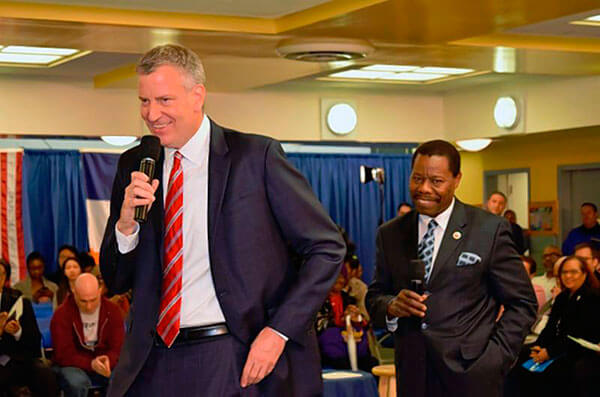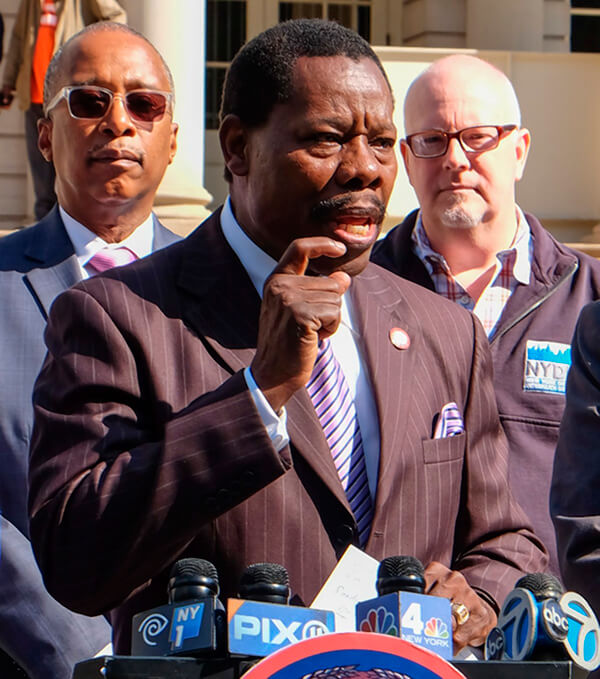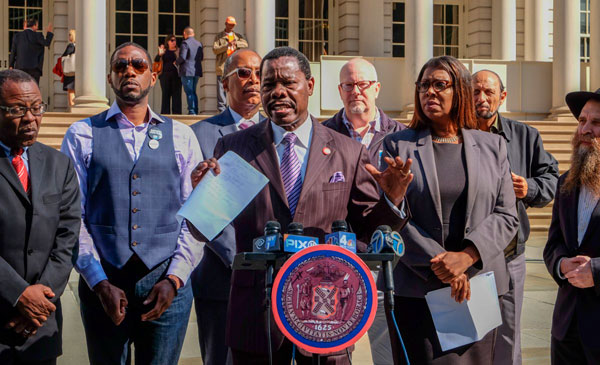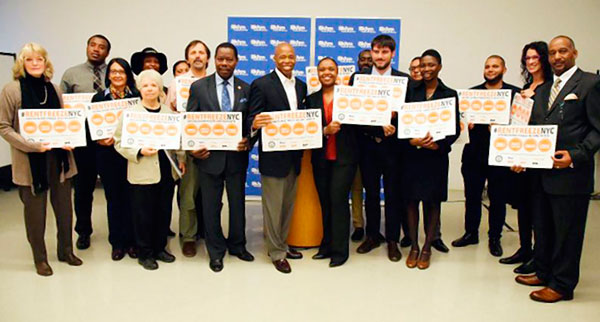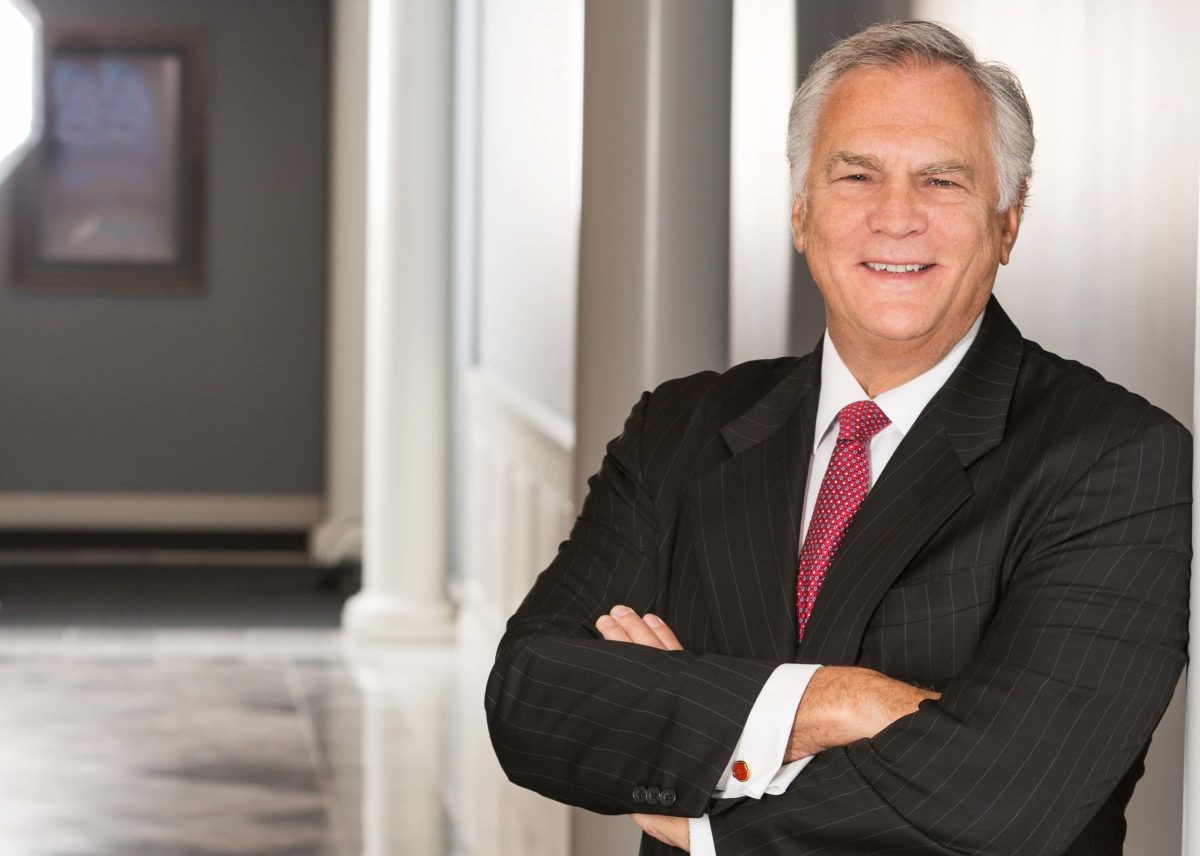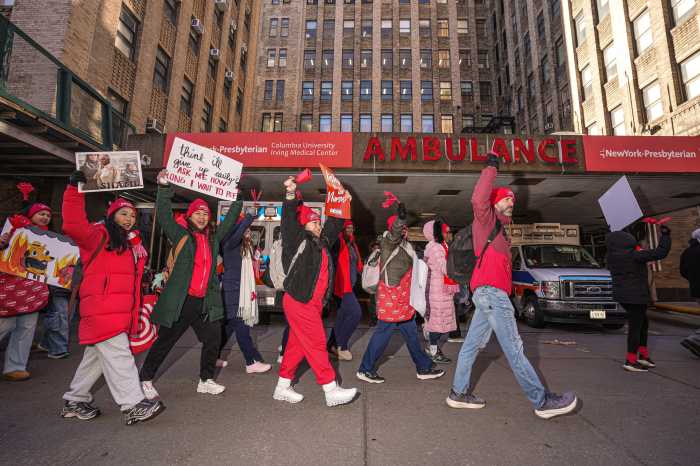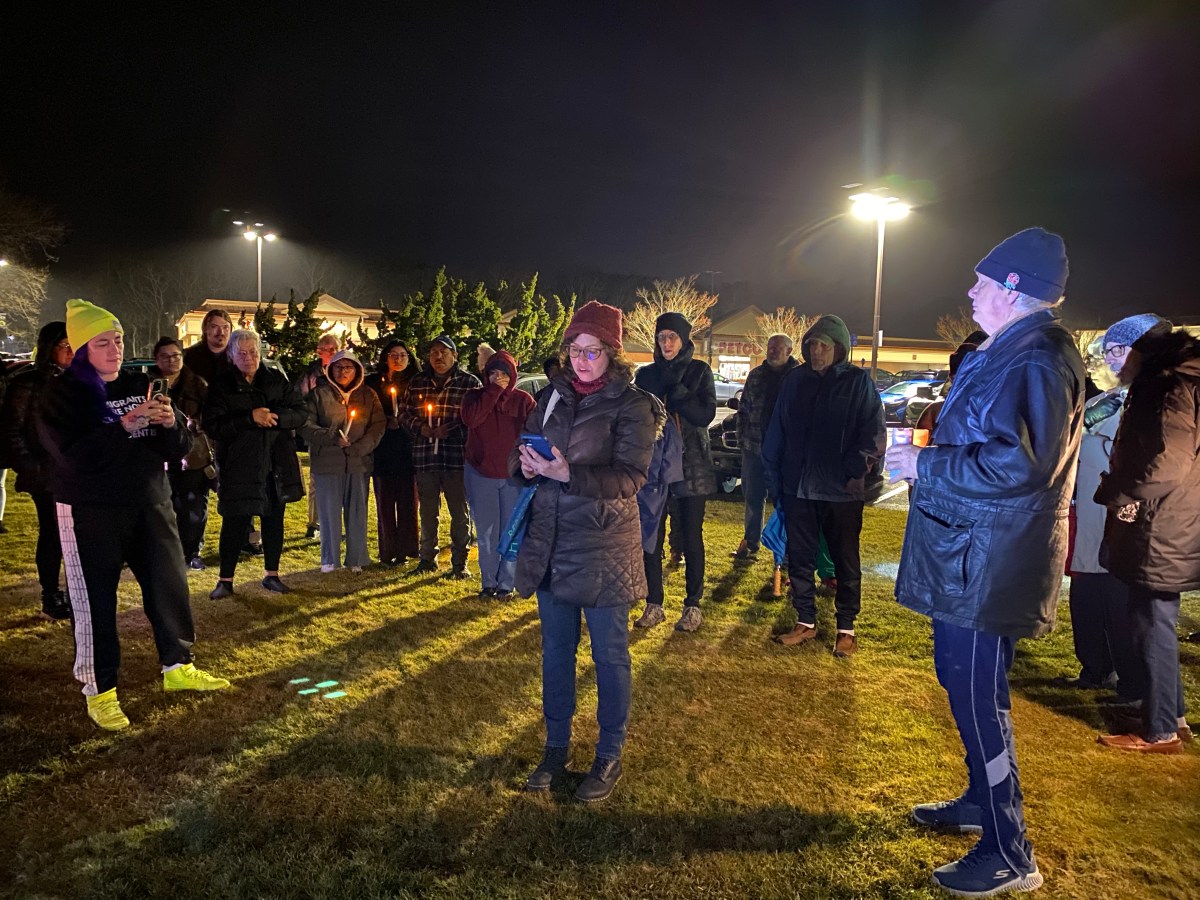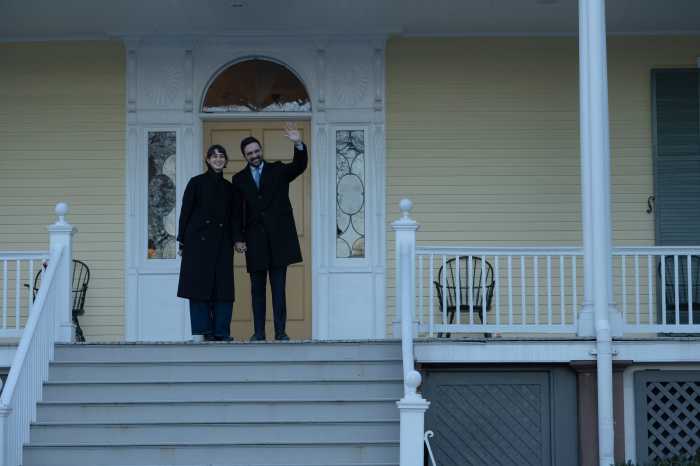Mayor Bill de Blasio came to Brooklyn on Monday evening to host a town hall meeting with local Council Member Dr. Mathieu Eugene to discuss with residents the mayor’s affordable housing plan.
Hundreds of residents, who had initially expressed concern about the plan, attended the meeting that was initiated by Eugene, representative of the 40th Council District.
While many residents agreed with the premise of affordable housing, Eugene said there was concern that the original plan did not provide enough housing for lower-income residents.
As an advocate for vulnerable residents, Eugene was very vocal about wanting to expand the affordable housing plan to include a deeper level of affordability.
Eugene said many of his colleagues worked with him to push for these new measures, adding that they were all pleased when they learned that changes were made to increase affordability for lower-income people.
“I’m so pleased that Mayor de Blasio heard our community’s concerns and has agreed to include a level of deeper affordability so that more families and individuals will be helped by this plan,” said Eugene, who moderated the event.
In addition to discussing affordable housing, the mayor took questions from residents regarding homelessness, transportation problems, and a variety of other local issues.
“The evening was a great way for community members to connect with Mayor de Blasio and learn about the proposed benefits of his affordable housing plan,” Eugene said.
“Housing is a basic human right, and everyone in our city deserves to have a place to call home,” he added. “I am pleased that Mayor de Blasio accepted my invitation to discuss his affordable housing plan with our community, and I look forward to working with him to ensure that everyone in our city receives the housing they deserve.”
Earlier on Monday, a proposal by the Mayor Bill to rezone parts of the city to build more housing cleared its most important hurdle.
Legislators at a City Council meeting made sufficient revisions to satisfy some of their colleagues and major critics who had opposed the plan for not doing enough to provide housing for the poorest New Yorkers.
The plan would now ensure that any new housing built would include units affordable to more of the city’s lower-income residents, including rental apartments in some developments for those making an average of 40 percent of the New York City area median income, or about $31,000 a year for a family of three, according to the New York Times.
It said the proposal is expected to pass the Council when it holds its next full session on March 22.
“Our work has resulted in a plan that addresses the magnitude of our city’s affordability crisis by encouraging smart, sustainable affordable housing production,” said Council Speaker Melissa Mark-Viverito in announcing details of the deal at City Hall.
“The focus of these changes is to provide affordability, one, and two, economic integration.”
“Years from now, we will look back on this as a watershed moment when we turned the tide to keep our city a place for everyone,” de Blasio said.
Council members said they have lowered the top inclusionary housing level for developers, from 120 percent of the area median income, to 115 percent, about $89,000 a year for a family of three, with requirements that a portion of the apartments in those developments be created for those earning much less.
The plan also includes the option to set aside the below-market-rate units for households with earnings averaging 60 percent of area income, about $47,000 a year for a family of three, at the low end, or an average of 80 percent of the median income, in the middle, according to the Times.
“We changed the affordability at both ends,” said Councilman David G. Greenfield, the chairman of the Land Use Committee who helped negotiate the changes with the administration.
The mayor said legislators “have pushed every day to reach as many New Yorkers as possible and to protect our neighborhoods.
“We look forward to seeing these vital reforms enacted in the days ahead,” he said. “New York City is now on the verge of implementing the strongest, most progressive affordable housing policies in the nation.”


